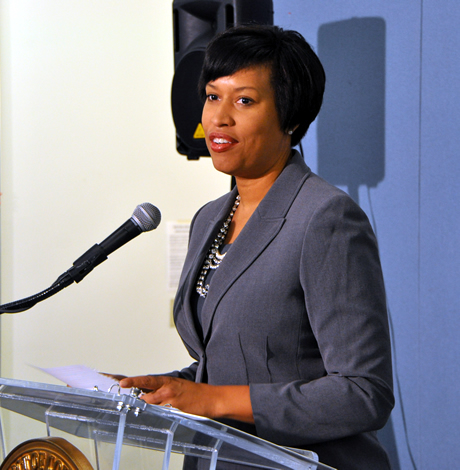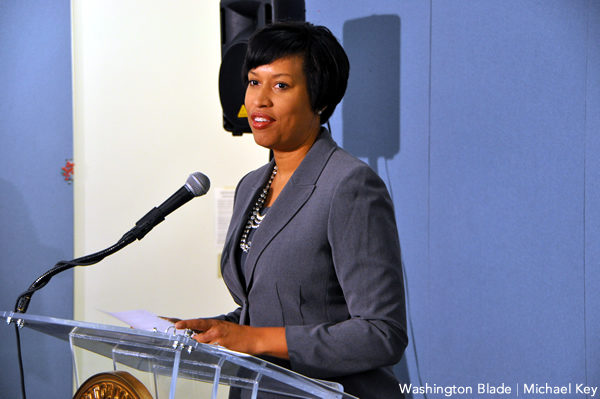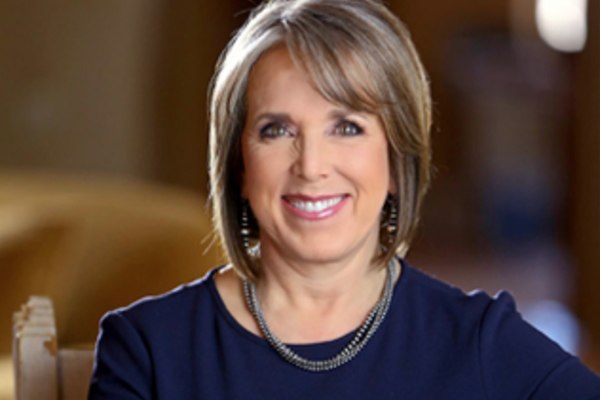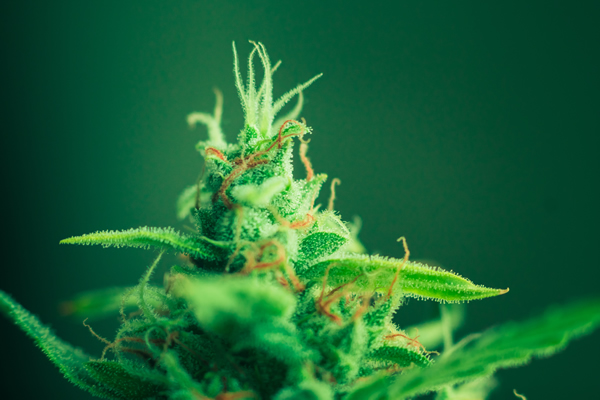Cannabis Culture
Cannabis Culture
D.C. mayor expands cannabis protections for workers


D.C. mayor expands cannabis protections for workers
Mayor Muriel Bowser signed an order last week clarifying legal protections for certain District employees who consume cannabis while away from the job. The new rules apply to all District government agencies under the direct administrative authority of the mayor.
Under the rules, many would-be employees will no longer face pre-employment drug screenings. The order states: “Employees who are not in a safety-sensitive position will be tested for drugs only upon reasonable suspicion, or after an accident or incident. Thus, those employees not in safety-sensitive positions may find that they can use cannabis, with or without a medical card authorizing [it], so long as they are not impaired at work.”
Commenting on the policy change, NORML NE Political Associate Tyler McFadden said: “Employment protections are critical to ensure that law-abiding adults are not unduly discriminated against in their efforts to be productive members of society solely because of their use of cannabis while off the job. This order provides clarity and guidance to employers and peace of mind to the employees who work in the District of Columbia.”
For employees seeking safety-sensitive positions, the order states that those who test positive for the presence of cannabis on a pre-employment drug screen may be “disqualified.” In some cases, however, the order states that those who initially test positive for cannabis may receive a “second opportunity to take a drug test at least two weeks after the initial test results have been provided.”
In cases involving post-accident testing, a positive drug test result for cannabis metabolites will continue to be viewed as presumptive evidence of impairment. However, this “presumption may be overcome if the employee presents clear or convincing evidence that he or she was not impaired at the time of the test.”
Because THC’s primary metabolite, carboxy-THC is lipid soluble, residual levels of the compound may persist in urine for weeks or even months post-abstinence. According to the US Department of Justice, a positive urine test screen for drug metabolites “does not indicate abuse or addiction, recency, frequency, or amount of use; or impairment.”
Earlier this month, members of the DC City Council approved Act Number A23-0114: The Medical Marijuana Program Patient Employment Protection Temporary Amendment Act, which seeks to impose explicit protections for medical cannabis patients against workplace discrimination.
Utah officials revise medical cannabis law
SALT LAKE CITY — Members of the Utah House and Senate unanimously approved legislation revising the state’s nascent medical cannabis access program during a special legislative session last week.
Under the revised plan, the distribution of medical cannabis products will no longer be overseen by public health regulators. Rather, the state will license as many as 14 private entities throughout the state to dispense cannabis products to authorized patients. The new legislation also permits courier services to engage in cannabis deliveries to those patients who either reside a significant distance from an operating dispensary or who are homebound.
Republican Gov. Gary Herbert expressed support for the changes, stating, “The bill will help provide safe and efficient access to an important medical option for patients while also taking public safety into consideration.”
This is the second time in less than a year that lawmakers have convened a special session to amend the state’s medical cannabis law. Voters in 2018 approved Proposition 2, which legalized the use and dispensing of medical cannabis to qualified patients. Shortly thereafter, lawmakers held a special legislative session where they voted to repeal and replace the initiative law with their own legislation. Specifically, lawmakers eliminated patients’ option to home cultivate cannabis, narrowed the list of qualifying conditions, and placed additional restrictions on the dispensing of cannabis products, among other changes.
Regulators want to amend rules for clinical cannabis testing
The Director of the U.S. National Institutes of Health and the Acting Commissioner of the Food and Drug Administration have acknowledged that existing federal regulations hinder clinical cannabis research, and are suggesting that scientists be able to legally access cannabis products from sources other than the University of Mississippi – the only federally licensed supply source of marijuana for research purposes.
In a letter to Sen. Brian Schatz (D-Hawaii), first obtained by Politico, the officials acknowledge that the existing monopoly on federally authorized cannabis production limits “the diversity of [cannabis] products and formulations available to researchers, [thus] slowing the development of cannabis-based medications.” The letter’s authors suggest both “licensing additional entities to supply cannabis,” as well as “enabling researchers holding Schedule I licenses for marijuana to obtain products from state authorized dispensaries.”
They conclude that the current regulations governing the clinical study of cannabis, along with the Schedule I status of marijuana under federal law, create “significant administrative cost challenges that slow this research and may deter scientists from pursuing cannabis research altogether.”
Since 2016, officials at the DEA have promised to license additional, private producers of research-grade cannabis. As of yet however, the DEA has failed to take action on more than 30 applications pending before it, and the agency has yet to provide a timeline as to when they intend to do so.
Cannabis Culture news in the Blade is provided in partnership with NORML. For more information, visit norml.org.

Democratic Gov. Michelle Lujan Grisham earlier this month signed two separate measures into law amending the state’s marijuana policies. The first measure (House Bill 2) legalizes and regulates marijuana possession, production, and sales for adults. The second measure (Senate Bill 2) facilitates the automatic review and expungement of the records of those convicted of low-level marijuana offenses.
Lawmakers approved both bills during a special legislative session demanded by Gov. Lujan Grisham, who had been a vocal proponent of the reforms.
NORML State Policies Manager Carly Wolf said: “This is a day to celebrate! New Mexico will greatly benefit from this new revenue stream and the creation of thousands of jobs. Most notably though, legalization will spare thousands of otherwise law-abiding residents from arrest and a criminal record, and the state’s new expungement law will help provide relief to many who are suffering from the stigma and other collateral consequences associated with a prior marijuana conviction.”
The adult-use measure (House Bill 2) permits those ages 21 and older to legally purchase up to two ounces of marijuana and/or up to 16 grams of cannabis extract from licensed retailers. It also permits adults to home-cultivate up to six mature plants for their own personal use. Retail sales would begin by April 2022.
The expungement measure (Senate Bill 2) stipulates that those with past convictions for offenses made legal under this act are eligible for automatic expungement of their records. Those currently incarcerated for such offenses are eligible for a dismissal of their sentence. It’s estimated that over 150,000 New Mexico residents are eligible for automatic expungement under this measure, according to the Department of Public Safety.
Cannabis Culture news in the Blade is provided in partnership with NORML. Visit norml.org for more information.
Cannabis Culture
Delaware cannabis activists take on corporate marijuana
Criticism from medical marijuana operators claimed that HB150 offers too many cultivation and retail licenses

As the country moves forward with sweeping changes in cannabis policy reform, locals in Delaware are tangling with corporate, multi-state medical marijuana permit holders to pass a bill for full legalization.
Adult-use activists and registered medical patients were stunned to hear opposing testimony from Delaware’s medical marijuana operators. Patients already deal with limited access and costly products. Now, many see the established industry voicing opposition as simply obstructing the progress of adult-use legislation. In response, some patients are now staging a boycott of the regulated dispensaries.
During the first committee hearing for HB150, Delaware’s adult-use bill, four of the state’s six currently licensed, multi-million dollar medical cannabis facilities offered negative testimony.
Zoë Patchell, executive director of Delaware CAN responded: “This market belongs to the long-time consumers, patients, and activists. We create the demand, we’ve been the ones driving the reform efforts, and we pay the prices at dispensaries. Cannabis is more than a market – cannabis is a community. These companies cannot reasonably fathom that we are going to purchase cannabis from any entity that has proven to put profits over patients. And now they seem willing to put consumers’ lives and freedom at risk just to hold out for an unfair advantage in the industry.”
These included publicly traded Columbia Care, “Fresh Delaware” aka CCRI, CannTech Research Inc., and the owner of EZY Venture aka “The Farm.”
They all went on record condemning HB150, and pushing a false narrative about oversupply. The core demand from the permit cartel was some protection for their private business interests with guaranteed adult-use licenses.
Criticism from the medical marijuana operators claimed that HB150 offers too many new cultivation and retail licenses, underlined by deep yet unfounded fears that the new competition would put their companies out of business.
Patchell noted, “We are not going to sit back while multi-state corporate entities, that already monopolize East Coast medical markets, work to undermine our social equity and micro-license provisions.”
Cannabis Culture news in the Blade is provided in partnership with NORML. Visit norml.org for more information.
Cannabis Culture
Virginia marijuana legalization takes effect July 1
Adult possession of cannabis up to one ounce without penalty

Following legislative approval of Democratic Gov. Ralph Northam’s amendments to Senate Bill 1406 and House Bill 2312, Virginia became the first southern state to legalize the possession and use of marijuana by adults.
Senate Bill 1406, introduced by Sen. Adam Ebbin (D-30) and Senate President Pro Tempore Senator Louise Lucas (D-18), and House Bill 2312, patroned by House Majority Leader Delegate Charniele Herring (D-46), establish a statutory timeline for the legalization of the commercial marijuana market in Virginia. The measure also permits for the personal possession and cultivation of cannabis by those ages 21 or older.
Last week, Gov. Northam recommended changes to the legislation to permit the personal use provisions of the law to take effect on July 1, 2021 rather than on January 1, 2024, the enactment date initially approved by lawmakers. A majority of the legislature concurred with that change.
Therefore, beginning July 1, 2021, adults will be permitted to possess up to one ounce of marijuana and to cultivate up to four cannabis plants per household without penalty.
The timeline by which state regulators have to enact provisions licensing commercial cannabis production and sales remains July 1, 2024.
Commenting on final passage, NORML Development Director Jenn Michelle Pedini, who also serves as executive director of Virginia NORML, said: “This is an incredible victory for Virginia. Legalization will bring an end to the thousands of low-level marijuana infractions occurring annually in the Commonwealth — ending a discriminatory practice that far too often targets Virginians who are young, poor, and people of color.”
Majority Leader Charniele Herring added: “It is a huge day for equity in the Commonwealth. Virginia is now the first state in the South to legalize recreational marijuana use, and I am so proud to have been able to carry this monumental legislation.”
Sen. Ebbin said, “The passage of SB1406 caps off years of struggle to reform our broken and outdated marijuana laws and begins the deliberate steps to repeal the harms of the failed prohibition. I am thankful to NORML, the governor, and my colleagues for moving this 283 bill from inception to passage over the last four months, and look forward to continuing to partner with them to establish a regulated, equity focused, adult-use marketplace in the coming years.”
Newly released statewide polling data finds that 68 percent of registered voters in Virginia, including majorities of Democrats and Republicans, support legalizing marijuana for adults.
Additional amendments added by Gov. Northam will allow the sealing of records related to crimes involving the misdemeanor possession of marijuana with the intent to distribute. Those records will begin to be sealed starting on July 1, 2021. Separate legislation enacted in 2020 previously sealed records related to misdemeanor marijuana possession.
Records specific to the simple possession of marijuana and/or misdemeanor possession with intent to distribute records will be automatically expunged no later than 2025. Those with records specific to crimes involving the felony possession of marijuana with the intent to distribute may begin to petition the courts for an expounging of their records in 2025.
The bill also allows for the re-sentencing of individuals currently incarcerated for marijuana-related offenses. The measure permits those individuals to have a hearing before the court that originally sentenced them, with legal counsel provided for indigent individuals. However, this portion of the bill must be reenacted in 2022.
The legislation also establishes an independent agency, the Virginia Cannabis Control Authority, to oversee the establishment of regulations that will govern the adult-use market. This agency is set to convene this summer. The remainder of the 300-page bill, which details the regulatory and market structure and social equity provisions, is subject to a second review and vote by the Assembly next year.
Cannabis Culture news in the Blade is provided in partnership with NORML. Visit norml.org for more information.
-

 Africa4 days ago
Africa4 days agoCongolese lawmaker introduces anti-homosexuality bill
-

 World4 days ago
World4 days agoOut in the World: LGBTQ news from Europe and Asia
-

 District of Columbia3 days ago
District of Columbia3 days agoReenactment of first gay rights picket at White House set for April 17
-

 Africa3 days ago
Africa3 days agoUgandan activists appeal ruling that upheld Anti-Homosexuality Act











